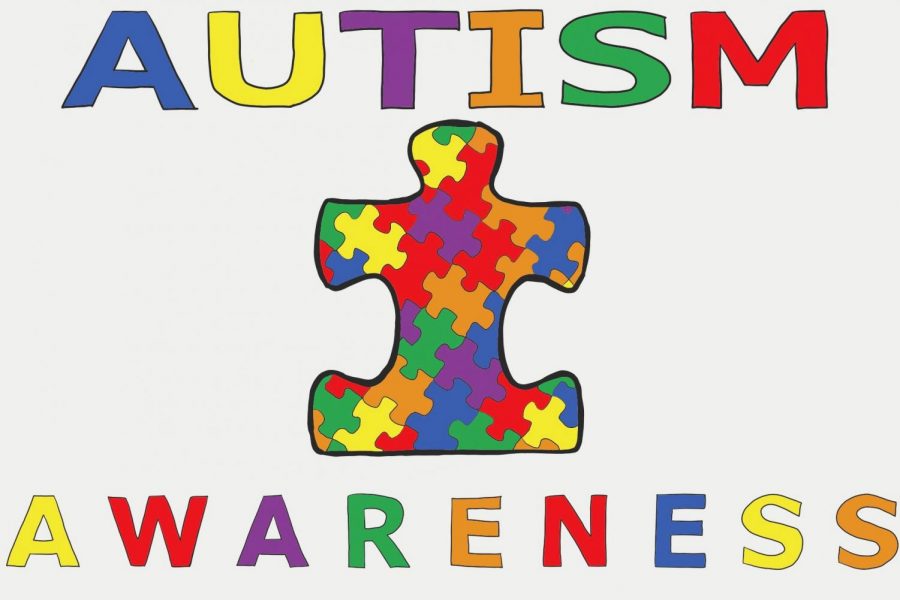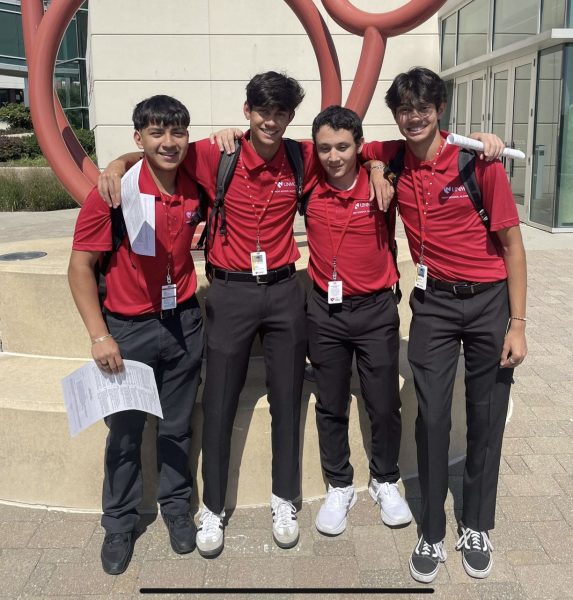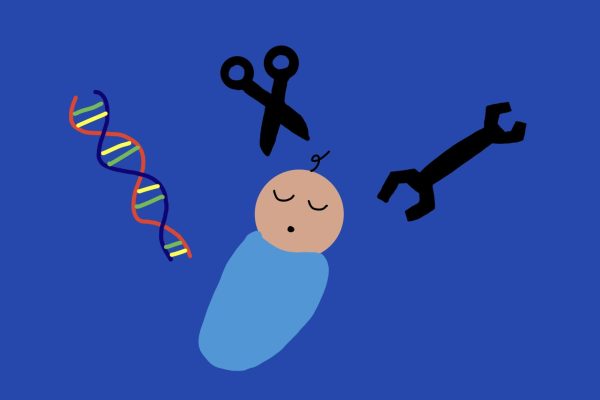Westside Individuals Reflect On Autism Awareness Month
More than 3.5 million Americans live with an autism spectrum disorder. The month of April is National Autism Month. Autism, or autism spectrum disorder (ASD), refers to a broad range of conditions characterized by challenges with social skills, repetitive behaviors, speech and nonverbal communication. This April, Autism Awareness Month is bringing forth attention to the disorder.
Parents can usually tell that their child has autism by ages 2 or 3, but developmental delays can be noticed as early 18 months. Symptoms of autism include abnormal body posturing or facial expressions, abnormal tone of voice, avoidance of eye contact or poor eye contact, behavioral disturbances, deficits in language comprehension, delay in learning to speak, flat or monotonous speech, and inappropriate social interaction. Children with autism often have intense interest in a limited number of things or problem paying attention.
Senior Andrew Esola was diagnosed with autism and describes how it affects his life.
“Autism is kind of like a mental thing,” Esola said. “Just because I’m having good life talking to friends or having a good time, it’s just I have some problems with my brain sometimes. Like I think thoughts when I don’t need to think them, and I think bad memories when I’m supposed to be you know relaxed, but it’s just like a lot of bombs going off in your head at the same time.”
Esola said he has dealt with many effects of Autism such as social problems and controlling his emotions, but has had resources available to help him.
“Sometimes people with Autism need to have things explained to them in a way that they could understand,” Esola said. “Sometimes they don’t get things the first time and sometimes they have social problems, but I’ve learned how to deal with the social problems as I’ve gotten older. I’ve seen a counselor that helped me control these emotions and I consider myself almost normal now. I’ve always been normal, it’s just these mental health problems; even Michael Phelps has mental health problems and it’s a real thing.”
Westside Special Education teacher Megan Riege said she knows that each person with autism has to be assisted in a different manner to specifically address his or her needs.
“There’s a saying that if you have met one person with autism, you have met one person with autism because each one of them is different,” Riege said.
As explained by Riege and noted by the National Institute of Mental Health, Autism is known as a “spectrum” disorder because of the broad range of the type and severity of symptoms. Some individuals with autism are low functioning and others are high functioning. Regardless of a person’s ability to function, Riege said that they all contribute something unique to their classroom.
“All are very very smart but different strategies are taught by us to make it fit their level,” Riege said. “We work a lot on verbal language in the classroom and whether they are verbal or non-verbal, we meet it to them. [To redirect kids] we use a lot of reinforcement. We use a token system and at the end when they’ve earned their tokens they get some sort of reinforcement, and how I redirect them is to remind them what I’m working for and if they want to earn what they are working for then they have to have expected behavior.”
Riege notes that Westside is a special place and it is important we support each other and include everyone, regardless of the challenges he or she faces.
“If you ever have any time come in and say hi,” Riege said. “I know Westside does an amazing job of inclusion, but we could always get better at that. So, having the student body and having teachers come in and just saying hi and getting to know our kids and having our kids getting to know everyone in the school, it helps them as well, finding new people that they are friends with and that they can connect with. So don’t ever hesitate to ask questions and don’t ever hesitate to come in and say hi to us.”
Your donation will support the student journalists of Omaha Westside High School. Your contribution will allow us to purchase equipment and cover our annual website hosting costs.

Hi my name is Jack Scioli! I am a staff writer for Westside Wired this year. I am currently a sophomore and this is my second year on Wired. If you have...

Hi, my name is Aayushi Chaudhary! I am the co-editor-in-chief of Westside Wired this year. I am currently a senior and this is my fourth year on Wired....

















